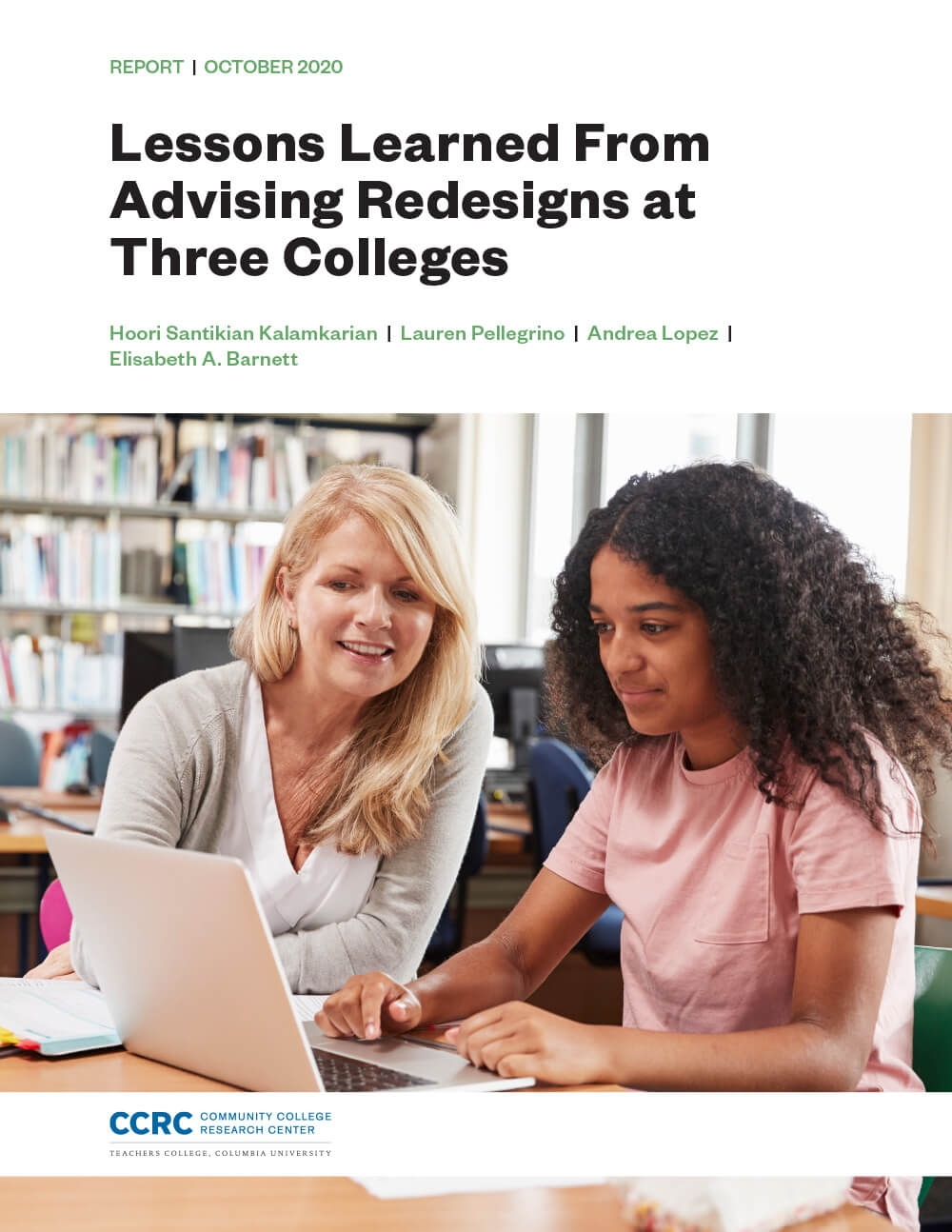
This report presents findings on the implementation of a technology-mediated advising redesign within the context of a randomized controlled trial (RCT) at three institutions—the University of North Carolina at Charlotte, California State University at Fresno, and Montgomery County Community College. These colleges aimed to improve their advising systems using a three-pronged approach: expanding informational communications to students, identifying and supporting students who are struggling, and improving advising sessions.
Though the RCT did not find significant changes in quantitative student outcomes such as grade point average, qualitative fieldwork suggests that stakeholders across the three institutions gained valuable experiences that may provide lessons for other colleges considering advising reforms. In this report, the authors explore how advisors adjusted their approach to advising work, how they used relevant tools and resources, and some of the challenges that arose during the redesign’s implementation.
Based on these implementation findings, the authors offer several suggestions for other colleges entering this work:
- Acknowledge up front that technology alone cannot resolve advising and student support issues, nor can it replace face-to-face conversations about education and career planning.
- Consider ways to encourage or make it easier for students to self-report concerns.
- Call for input from advisors, faculty, students, and communications or marketing teams on the content of risk-related messages and alerts.
- Consider alternatives to registration holds to incentivize students to meet with an advisor, as registration holds may have unintended consequences.
- Give advisors the time, resources, and professional development to proactively engage with students.
- Provide ongoing support for staff in implementing reformed advising practices.
